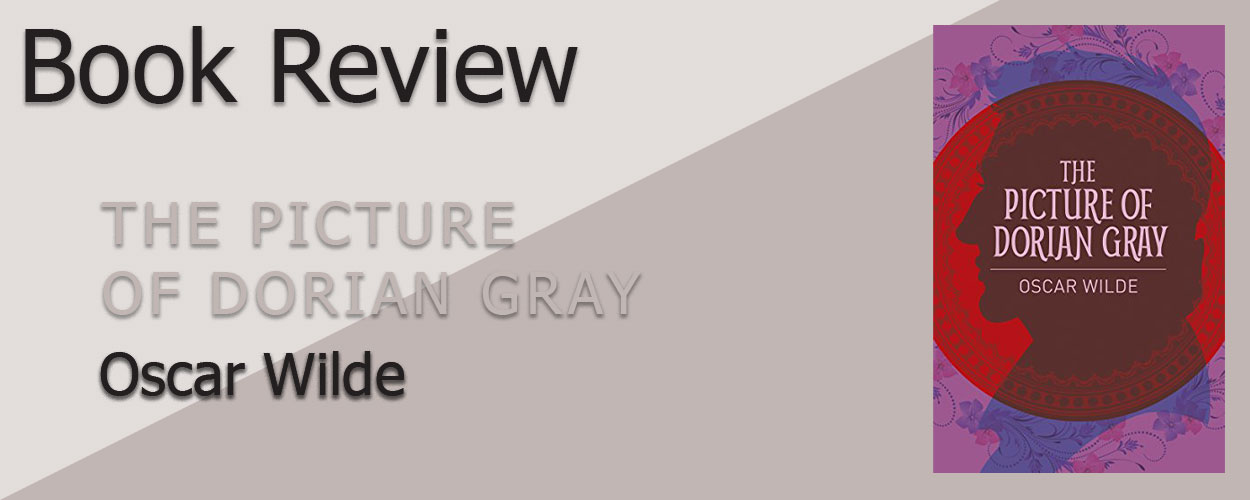

I really liked it
I’ve never read any of Oscar Wilde’s books until now, though I’ve heard so much about him. This just means I’m in for a treat to get to know this author better. I figured this book was a good place to start.
Read: Apr. 13, 2025
Genre: Classic, Gothic, Philosophical
Audience: General
Book contains: implied homosexuality, vanity, cruelty, mentioned suicide, murder, corruption
Purchase a copy from Indigo.ca
Meeting Lord Henry was the beginning of the end for young Dorian Gray, a beauty of a man. A masterpiece painting shows Dorian his own true beauty, which only sparks vanity in his heart, and as his actions grow darker, he finds that his beauty is protected by the desperate prayer he made never to grow old. This picture, the one painted of him, shows his soul, his true self.
This novel turned out to be far more similar to The Strange Case of Dr Jekyll and Mr Hyde by Robert Louis Stevenson than I initially thought, and I’m actually quite happy about that. There were also distinct overlaps with Crime and Punishment by Fyodor Dostoevsky in the second half. It’s such a deep, philosophical question: should one be more focused on the beauty of the body or the beauty of the soul? Dorian Gray is given the unique opportunity to see the true essence of his soul, and watch as it degrades over the years of his fall from grace.
This novel is written in third person, and while it doesn’t start with Dorian Gray, once he shows up, the narrative solely follows him on his journey to the depths of malice and corruption.
I listened along to the LibriVox audiobook attached to this novel, mostly while working on formatting a book for a client. I only briefly followed along in my physical copy of the book.
Dorian Gray, our main character, starts off as a shy but friendly youth, but as the narrative progresses and the years go by (nearly two decades) he becomes darker and crueler. His feeble conscience is fighting against the logical, cynical side of his brain. Lord Henry has a witty character, but he is also very persuasive and charming, filling Dorian’s head with poor morals and radical thoughts—for instance, that a man who was intending to murder is more interesting than a man who accidentally killed someone. The painter and the actress are two unfortunate victims of this trainwreck of a situation.
Dorian Gray’s relationship with beauty and the value of it is quite intriguing, specifically because he didn’t start out this way. He didn’t even realize how beautiful he was until he saw the painting that would inevitably become his downfall. And, of course, this realization came upon his meeting of Lord Henry, whom he affectionately calls Harry. While a charming talker, Lord Henry is a man who does not shy away from sharing his “wrong, fascinating, poisonous, delightful theories” with Dorian; he is rather hedonistic, and also radical and challenging in his morals. The other strong relationships Dorian has are that of his friendship with the painter Basil Hallward, and his brief infatuation with the actress Sibyl Vane. They both represent massive shifts in Dorian’s perspective. The actress first, as he is first outrageously in love with the idea of her, rather than the girl herself. The truth about her is what first spurs Dorian into darkness. Meanwhile, Basil, despite being responsible for the painting that drives Dorian to madness, is representative of Dorian’s last flecks of morality.
This may be my first foray into Oscar Wilde’s works, and I can happily say I love it so far. There is beauty in his writing, but also darkness that matches the Gothic vibe. This is a book that can be enjoyed on a surface level, but also allows a reader to dive deep into the underlying messages and hidden meanings. Dorian gets his “just desserts” by the end, but things are certainly not settled. It’s quite good.
At some points I felt like the pacing was odd, as a lot of the beginning takes place over a few months, then there is a time skip of nearly two decades before the finality of the tale. It made me wonder why everything seemed to happen all at once by the end, though I could see how the crash was coming.
This book suits lovers of philosophy, but also those who enjoy gothic fiction, paranormal activity, or just a good read. I recommend it to readers who like deep thinking.
The Strange Case of Dr Jekyll and Mr Hyde by Robert Louis Stevenson
Crime and Punishment by Fyodor Dostoevsky
Frankenstein by Mary Shelley
Tigerpetal Press is a small book press dedicated to publishing local authors and poets.